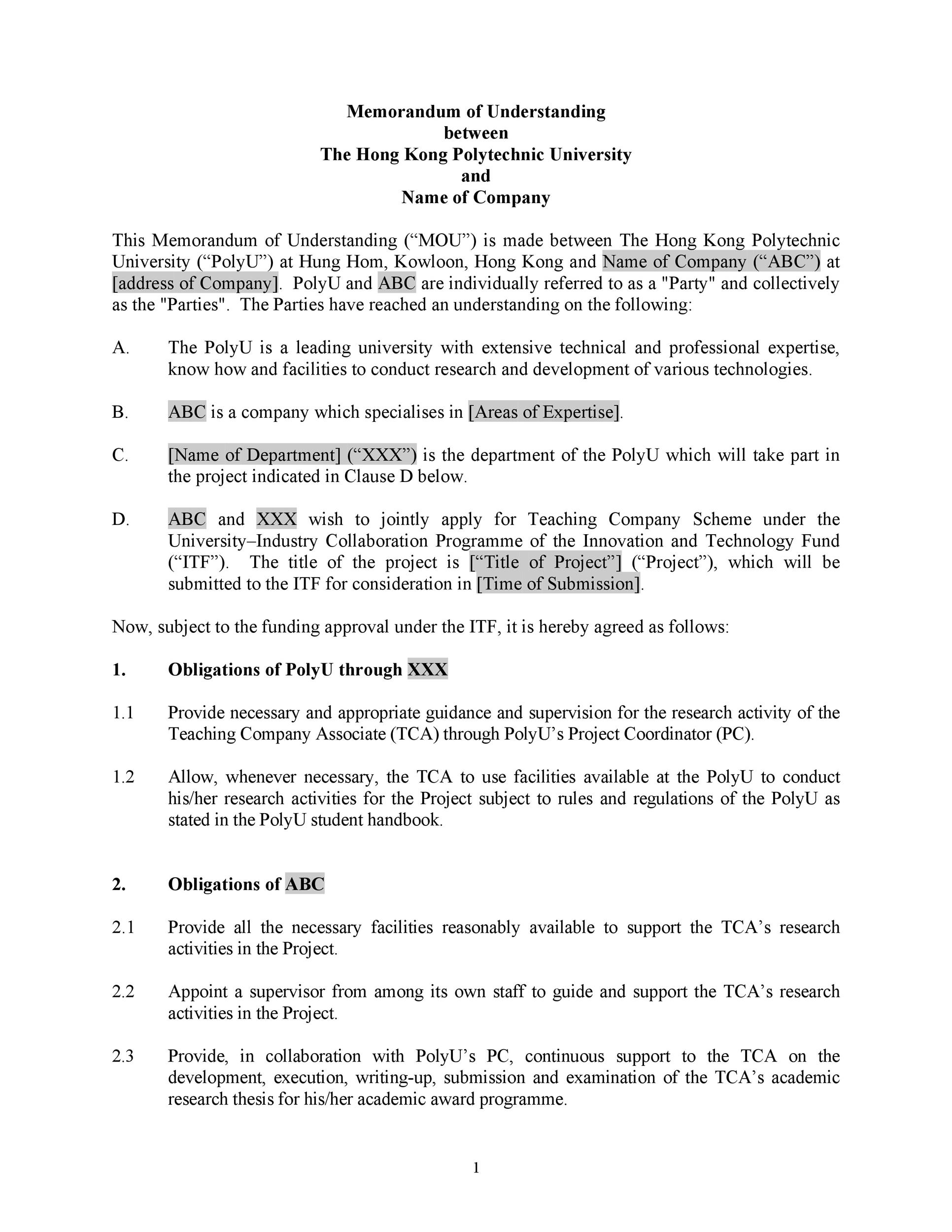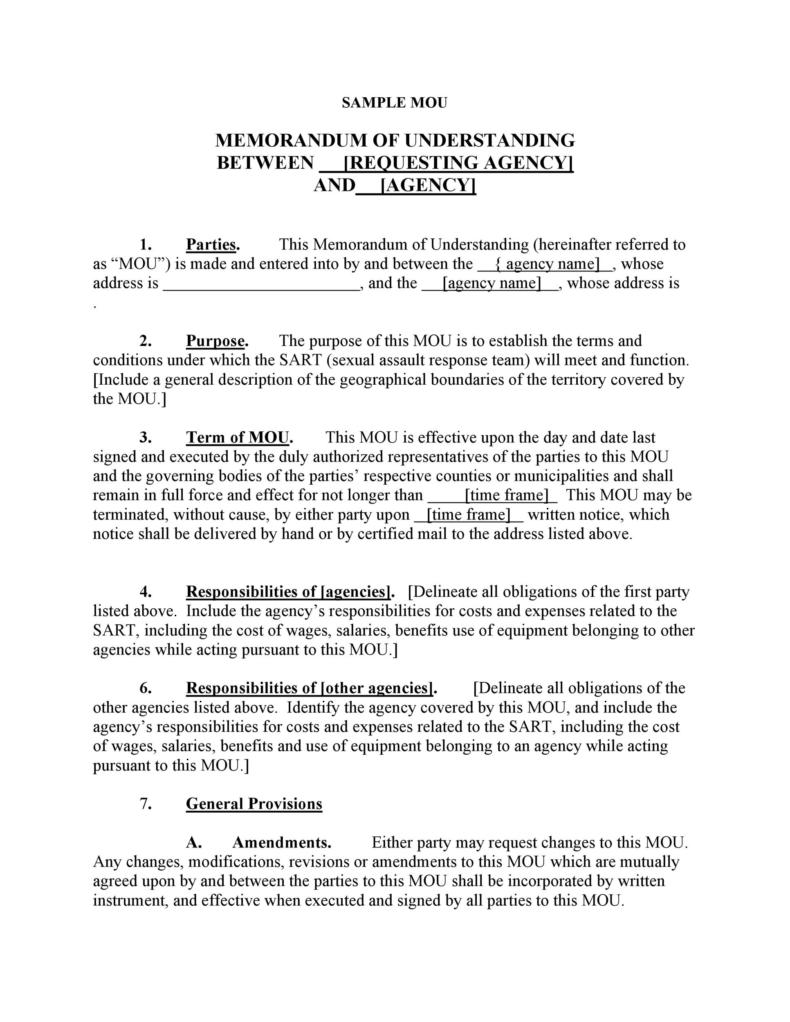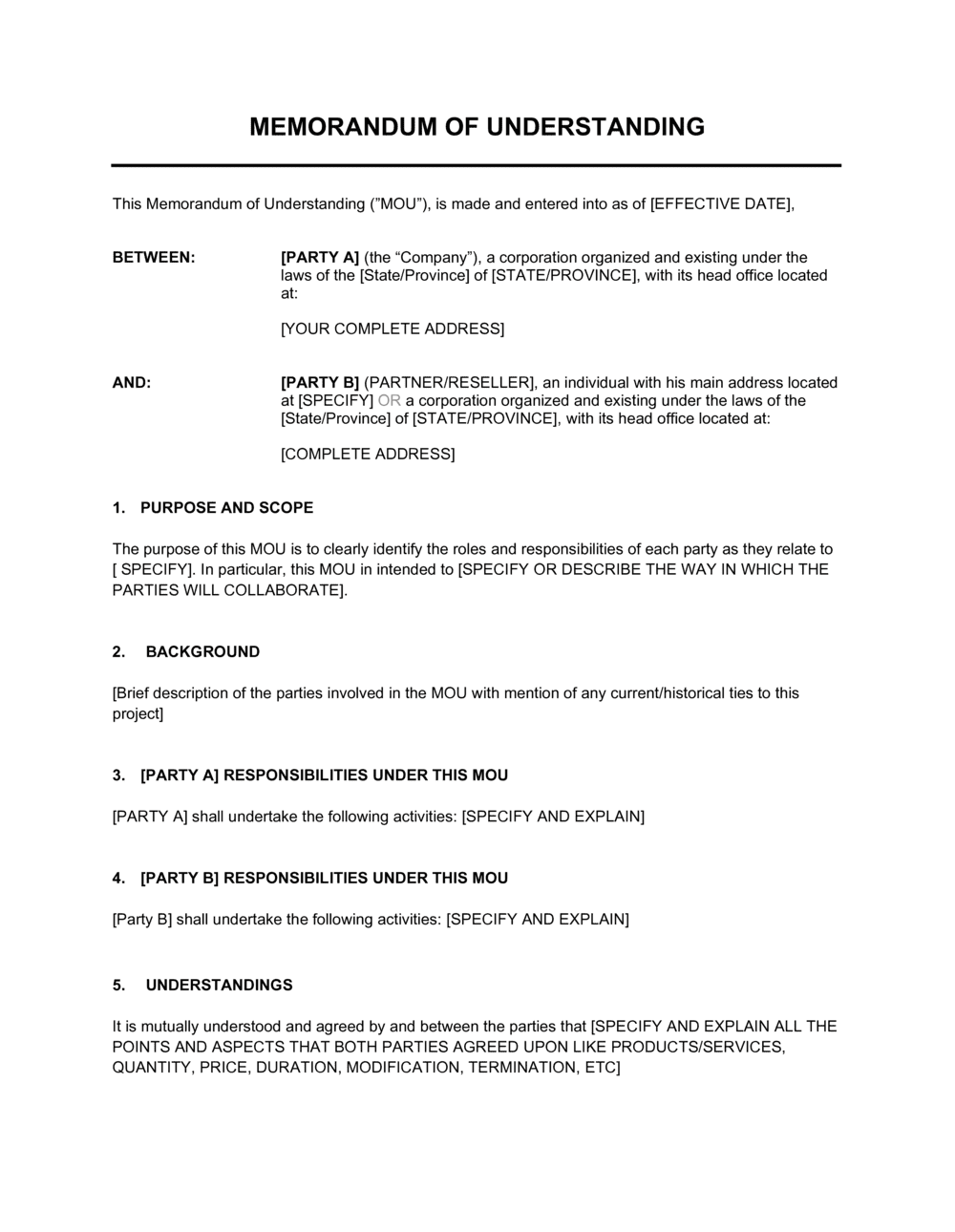

In these kinds of situations, an MOU is an appealing option because it's simple and direct, without the kinds of complex and combative standard terms and conditions of contract law. They require the parties to come to some sort of mutual agreement, and in order to do that, they have to take stock of their needs and wants and put them to paper. In some cases, a party is legally required to create MOUs, such as when housing authorities negotiate with tenants.īut MOUs hold a lot of potential power because of the time and energy they take to plan and write. You may wonder why two parties would go to the effort of putting together an MOU, especially considering that it's not an enforceable document. On the next page, you'll see why memoranda of understanding are virtual celebrities in the legal world.

They also provide a mutually beneficial framework that both entities can work within to achieve shared goals. Well-written MOUs reflect diplomatic savvy and creative analytical thinking. But ultimately, the reason that parties opt for MOUs is because they are simpler and more flexible than contracts. All sorts of entities use MOUs to create guidelines for each party as they contribute their efforts and resources toward important projects. MOUs are less formal than contracts, and typically include fewer details and complexities, but they are more formal than handshake agreements, sometimes called gentlemen's agreements. Contracts are necessary when there is any sort of exchange of money because they help to protect the interests of both parties and ensure trust. A contract is a written, private agreement between two parties that is legally binding and can be enforced by a judge.Ĭontracts spell out the nitty-gritty obligations of each party which, if breached, can spell dire consequences for the entity that breaks it. You might think that memoranda of understanding sound suspiciously similar to contracts, but there are actually significant differences between the two. And here are two other touchstones of MOUs - generally they're not legally binding, in part because neither party wants to deal with the ramifications of a binding agreement, and they don't involve the exchange of money. No matter their length or complexity, MOUs specify mutually-accepted expectations between two or more people or organizations as they labor together toward a common objective. Others are long-winded and extremely detailed. For information on international agreements, contact the Office of International Programs.MOUs are very common and are used for domestic purposes and agreements between nations. The USGS also has MOUs that describe and govern cooperation with agencies of foreign governments for our international activities. The USGS has active MOUs, signed by the Director, with numerous Federal agencies and/or entities. MOU templates for non-federal or federal agencies: USGS policies for working with other Federal agencies are described in the U.S. An MOU may address cooperation that ranges from a single State to activities at multi-State, regional, multi-regional, national, or international levels. MOUs generally do not include specific information regarding detailed scope of work or the exchange of funds or human resources. A list of those agreements are found here.Ī MOU usually describes, in broad general terms, an area of mutual interest or concern that may be addressed cooperatively by two or more agencies or entities. However, while some of these agreements are active, others have expired and some are so old (1947) that they would require legal opinion before they could be used.

In addition to the MOUs posted on this website, there are other MOUs on file in the Director's Office. By providing a reference of active as well as inactive MOUs, we hope the amount of time and paperwork required to initiate new cooperative work may be significantly diminished.

Our goal in creating and maintaining this site is to help make it easier for the USGS to coordinate, cooperate, and work together with other partners. An MOU is a critical component of any formal arrangement for cooperation between two or more Federal agencies or entities.


 0 kommentar(er)
0 kommentar(er)
